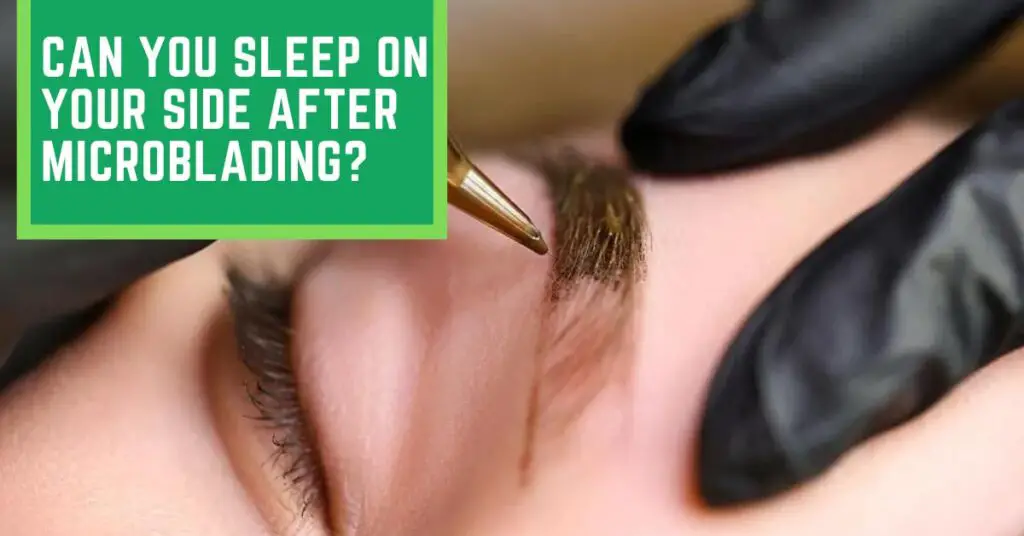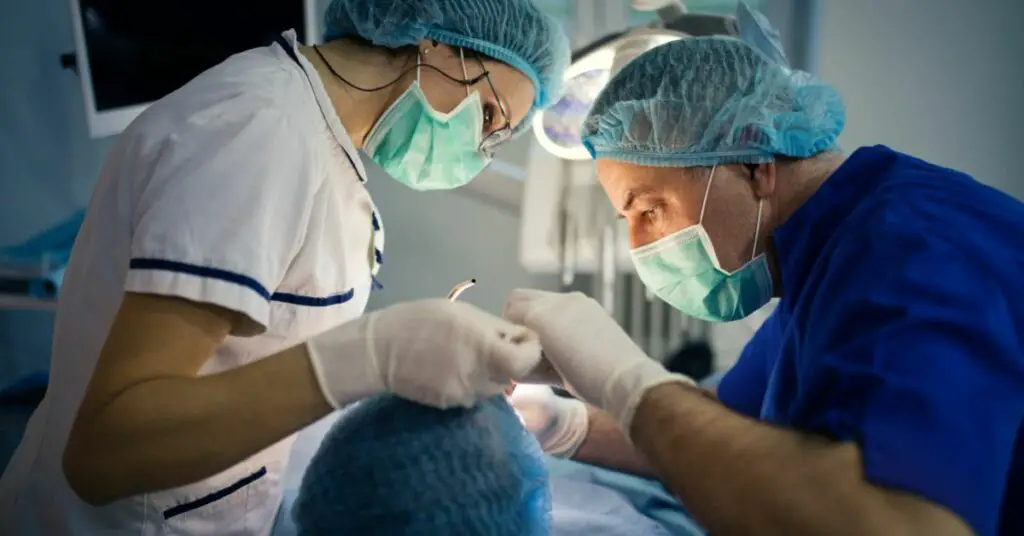Jaw surgery can be performed for a variety of reasons. The most common reason is to correct an improper bite.
There are many other types of jaw surgery, and the type that is right for you will depend on your specific case. People who wish to get jaw surgery wonder how to sleep after the surgery.
The answer is you should sleep with your head elevated on two pillows or in a relaxing recliner chair for at least one week.
In this article, we’ll discuss everything you need to know about sleeping after jaw surgery. By reading this article, you will become confident in the best way to sleep and will avoid any potential complications.
What is Jaw Surgery?
Jaw surgery, also known as orthognathic surgery, is a type of corrective surgery for irregularities of the jaw and face. The goal of this surgery is to improve the functionality and balance of the jaws and teeth. An oral and maxillofacial surgeon usually performs this type of surgery.
Jaw surgery may be necessary for a number of reasons. Some people have jaws that are out of alignment, which can cause problems with eating, speaking, and breathing.
Others may have an overbite or underbite, which can lead to issues with the function and appearance of the teeth. Jaw surgery can also be used to correct birth defects or injuries to the jaw.
The type of jaw surgery that is right for you will depend on your specific needs and goals. In some cases, the upper and lower jaws may be moved as a single unit. In other cases, each jaw may be moved separately. The surgeon will work with you to determine the best course of treatment.
Jaw surgery is a serious procedure, but it can have a profound impact on your life. If you are considering this type of surgery, be sure to talk to your doctor about all of your options and what to expect during and after the surgery.
What to Expect After Jaw Surgery?
Most patients will experience some degree of discomfort and soreness following surgery.
This is normal and will gradually improve over the first week or two. During this time, it is important to follow your surgeon’s instructions carefully to ensure proper healing.
You may also have some bruising and swelling around the surgical area. This should begin to improve within a few days and will resolve completely over the next couple of weeks.
You will likely need to eat a soft diet for the first week or two following surgery. This means avoiding hard, crunchy, or chewy foods. Once your surgeon gives the okay, you can slowly start to add more solid foods back into your diet.
Some patients may also experience temporary changes in their speech and/or ability to swallow following surgery. This is usually due to the swelling and should improve within a few weeks.
If you have any questions or concerns following your surgery, be sure to contact your surgeon. They will be happy to address any of your concerns and help ensure a smooth recovery.
Tips to Sleep Comfortably After Jaw Surgery
If you’ve recently had jaw surgery, you may be wondering how you’re going to get a good night’s sleep. Here are a few tips to help you sleep comfortably and wake up feeling refreshed:
1. Use extra pillows to support your head and neck. This will help keep your head in alignment and prevent discomfort. Place a pillow under your knees to relieve pressure on your lower back.
3. Use a humidifier in your bedroom to help keep your throat and nasal passages moist. This will also help reduce snoring.
4. Drink plenty of fluids during the day so that you’re not dehydrated at night. Avoid caffeinated beverages before bedtime.
5. Establish a regular sleep schedule and stick to it as much as possible. This will help regulate your body’s natural sleep cycle.
By following these tips, you can get the quality sleep you need to heal and feel your best.
Recovery Time For Jaw Surgery
Most people who have jaw surgery will need about four to six weeks to recover. This includes time for your incisions to heal and for any swelling to go down.
You may have some pain and discomfort during this time. Your doctor will give you pain medicine to help with this.
You will probably need to eat soft foods for a few weeks after surgery. You may also need to drink from a straw and avoid hard, crunchy foods.
You will likely have some bruising and swelling around your face, neck, and jaw after surgery. This should start to go down after a few days. But it may take a week or two for the swelling to go away completely.
You may also have a drain in your neck to help with any excess fluid that can build up after surgery. Your doctor will usually remove this a few days after surgery.
Most people take four to six weeks off from work or school to recover from jaw surgery. But this can vary depending on how you feel and how well you heal.
If you have any questions or concerns about your recovery, be sure to talk to your doctor. They can help you create a plan that is right for you.
The Risks Associated With Jaw Surgery
While this type of surgery can be very effective in correcting these problems, it is also associated with a number of risks.
The most common complication associated with jaw surgery is infection. Infection can occur at the site of the incision, as well as in the tissues around the jaw. This can lead to significant pain and swelling and may even require hospitalization.
Another risk associated with jaw surgery is nerve damage. The nerves that run through the jaw can be damaged during the surgery, which can lead to numbness or tingling in the lips, tongue, or chin. This can be a temporary or permanent condition.
In some cases, jaw surgery can also cause problems with chewing or swallowing. This is usually due to the fact that the muscles and bones in the jaw are rearranged during the surgery. In rare cases, this can lead to difficulty breathing.
As with any type of surgery, there is also the risk of bleeding and blood clots. These risks can be increased if the patient has a history of bleeding disorders or takes blood thinners.
Overall, jaw surgery is a relatively safe procedure. However, as with any type of surgery, there are always risks involved. Be sure to discuss these risks with your doctor before undergoing jaw surgery.
When to Check With Your Doctor After Jaw Surgery?
If you experience any pain, swelling, or bleeding at the surgical site, it’s important to check in with your doctor. They will be able to determine if there are any signs of infection and make sure that you’re healing properly.
It’s also important to keep an eye on your incisions. If they begin to open up or look infected, you’ll need to see your doctor right away.
In general, it’s a good idea to check in with your doctor a few times during your recovery. They can answer any questions you have and make sure that you’re on track.
Frequently Asked Questions Related to Sleeping After Jaw Surgery
1. When can you sleep lying down after jaw surgery?
Most people can sleep lying down after jaw surgery within two weeks. However, everyone heals differently, and you should follow your doctor’s instructions on when it is safe to lay down.
2. Can I sleep on my side after jaw surgery?
Not recommended. Sleeping on your side can cause swelling and discomfort. Try sleeping on your back instead. If that is not comfortable, try using a pillow to keep your head elevated.
3. What is the fastest way to recover from jaw surgery?
It’s important to follow the doctor’s instructions for post-operative care to ensure a fast and smooth recovery. In general, you’ll want to take it easy for the first few days, eat soft foods, and drink plenty of fluids.
You may also want to use a cold compress on your jaw to reduce swelling and pain.
If you’re having trouble sleeping due to pain or discomfort, you can ask your doctor about prescribing medication to help you get some rest. Most people make a full recovery within two weeks.












